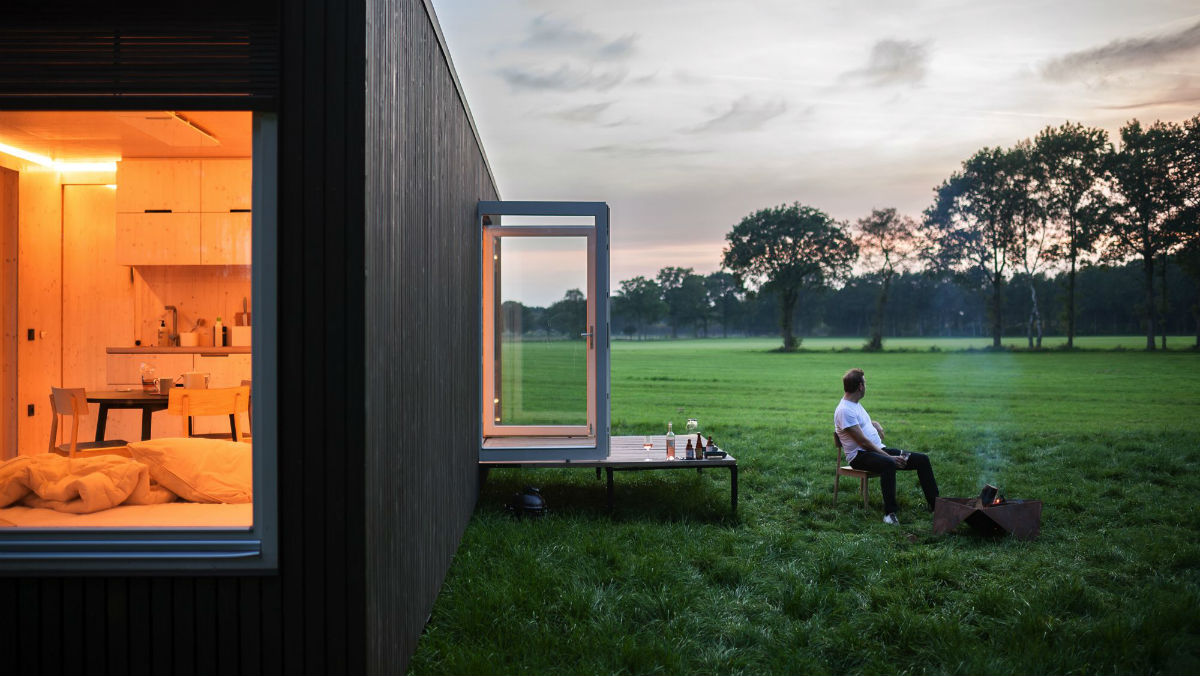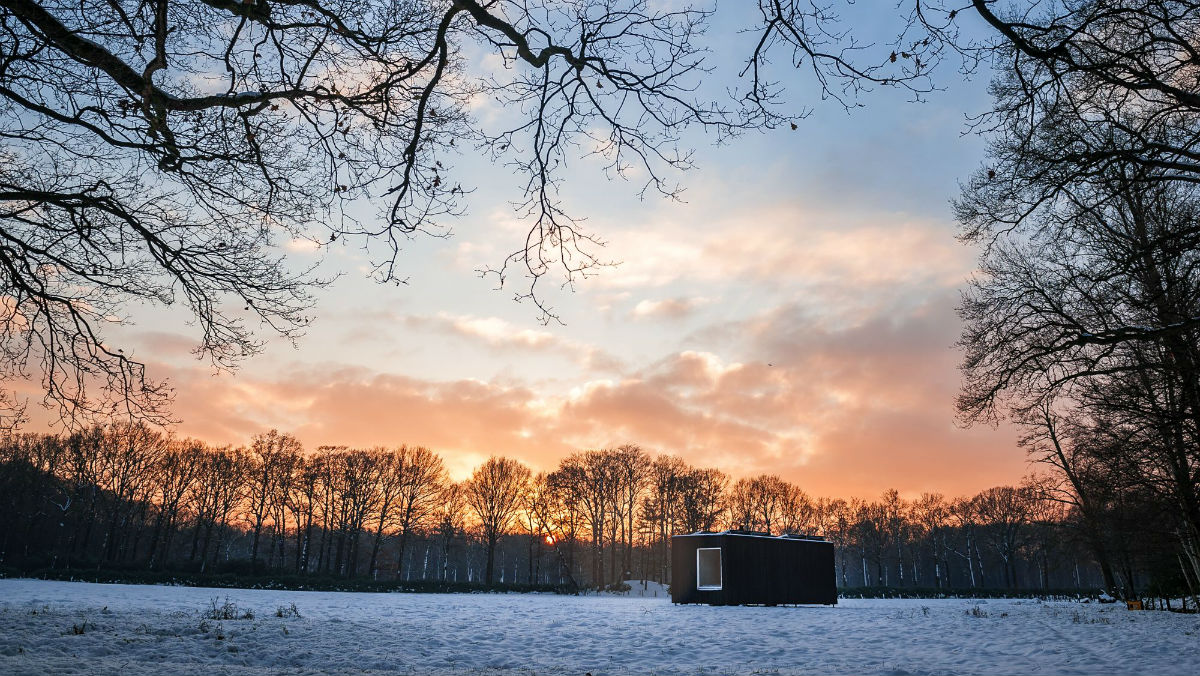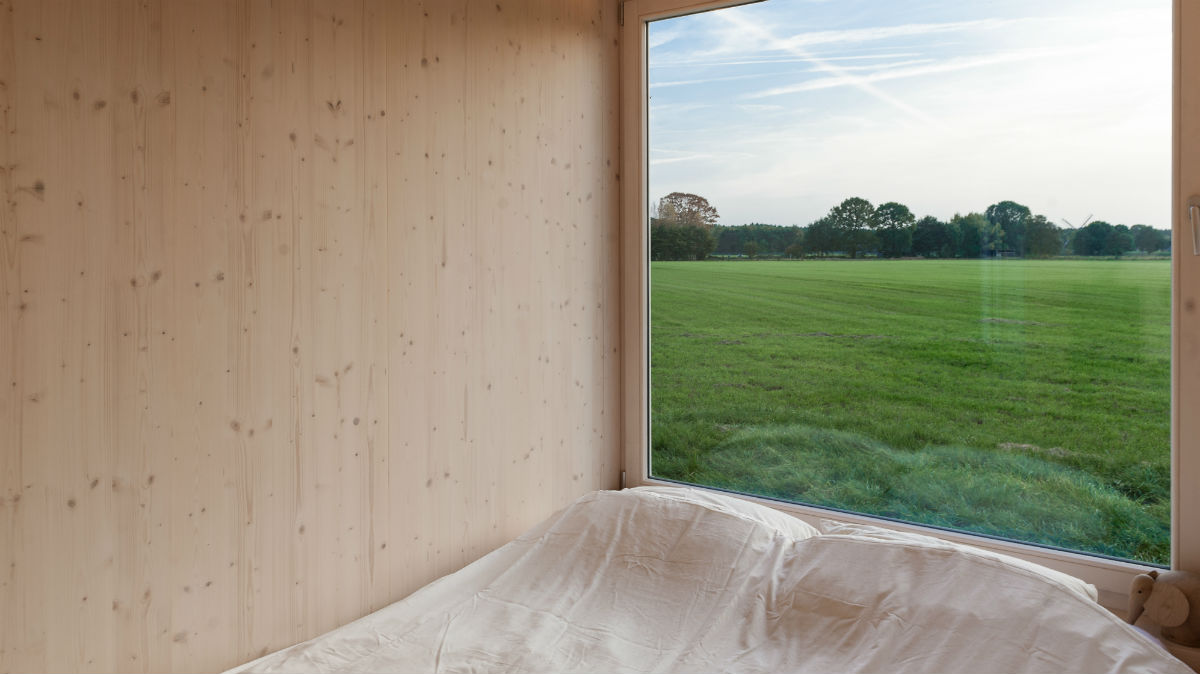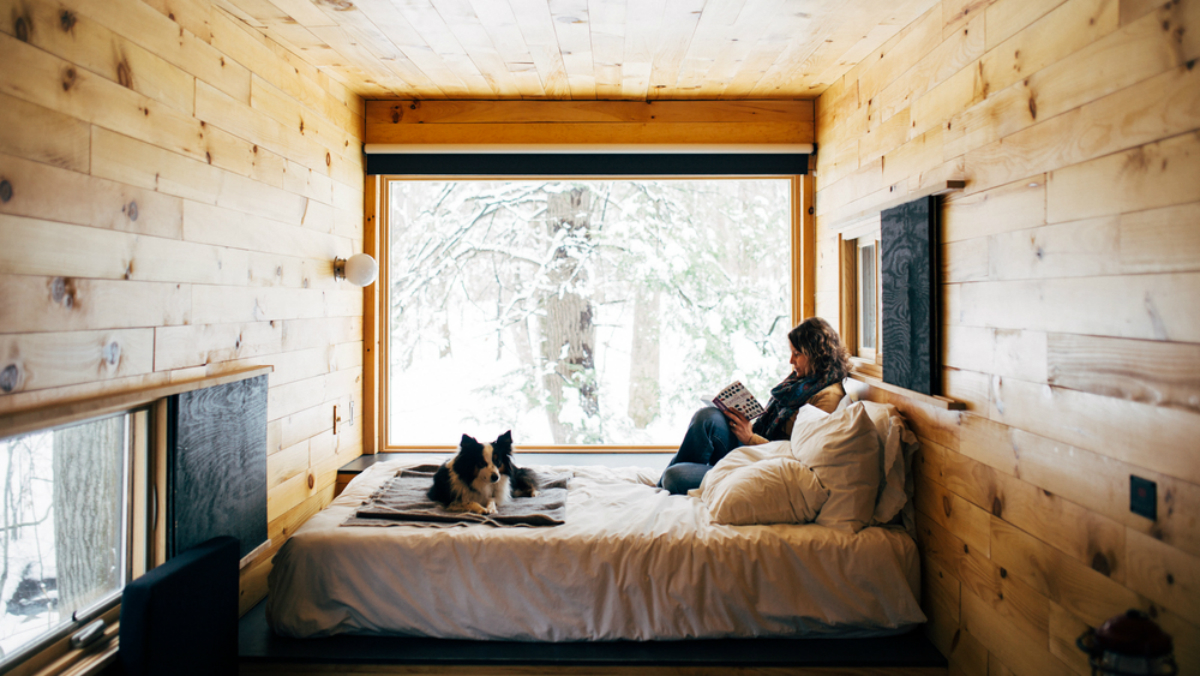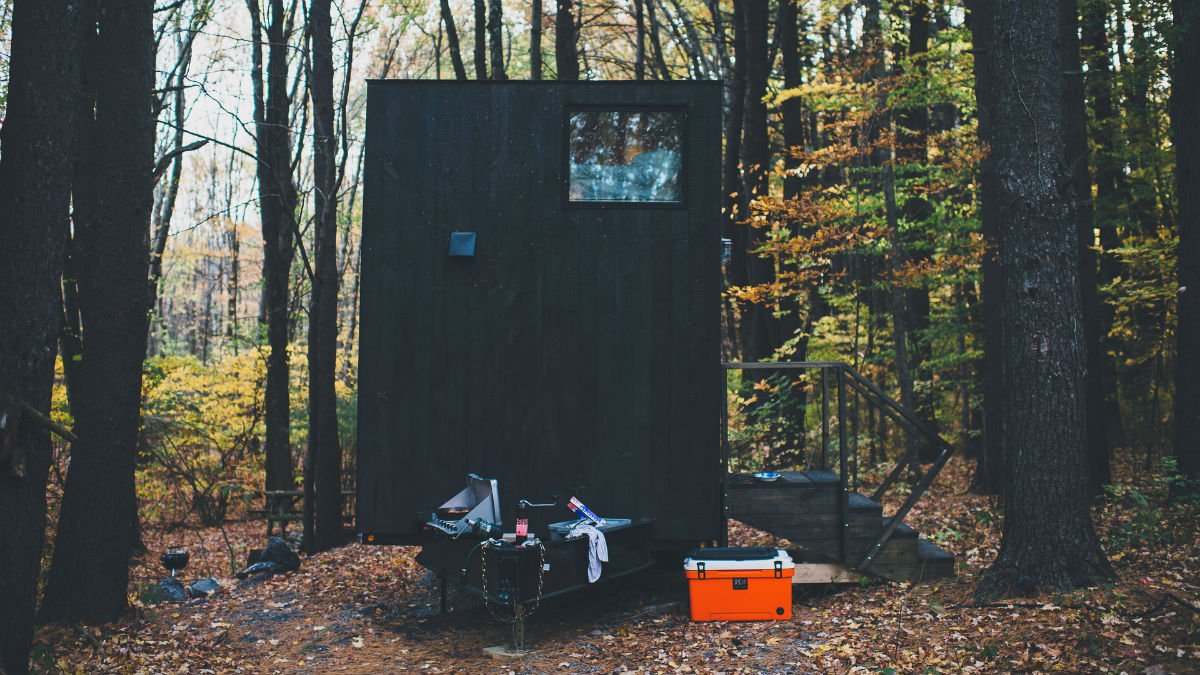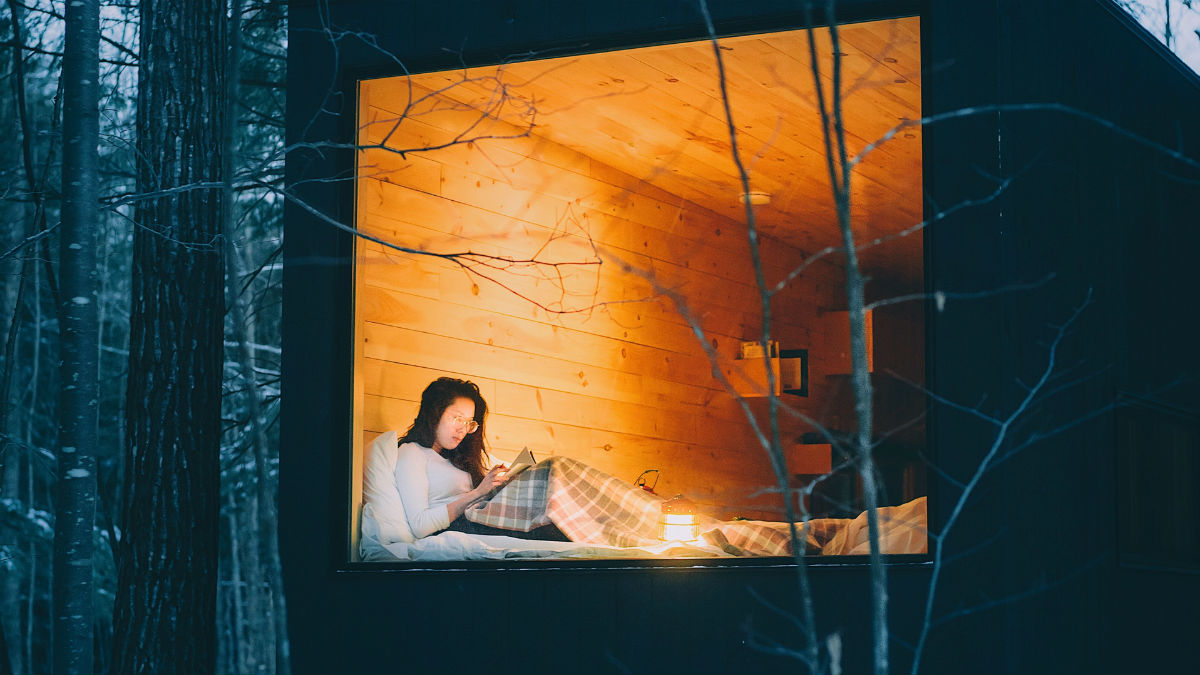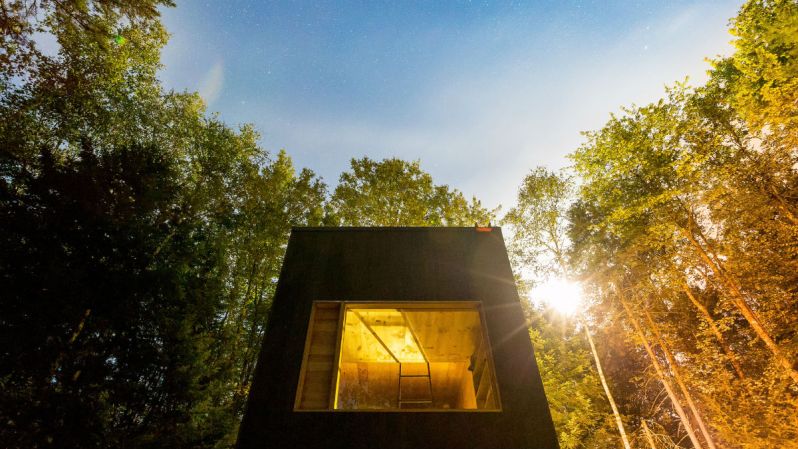
We’re drowning in technology. It can’t be long before the world goes full Minority Report and electronic billboards start pitching to us directly by name. It’s enough to make any sane man consider packing the apocalypse truck and bugging out to an underground bunker. So, it’s hardly surprising that we’re looking to escape — to digitally detox — to anywhere without Wi-Fi, Facebook, and the ever-present, 24-hour news cycle. Enter “secret cabin” vacations.
The concept is simple: Off-grid cabins are scattered throughout hidden rural locations outside several major cities. Guests book the cabin that’s nearest them without knowing exactly where said cabin is located. All the essentials are provided, of course: running water, a roof over your head, and electricity to cook and light your way with. However, the precise address of each cabin isn’t revealed until after booking. It’s a bit like FreeHouse meets Hotwire with a dash of tiny house living.
If this sounds like an implausible business model, consider that it already works for the likes of Hotwire and others. That’s because plenty of budget travelers are looking for any hotel, so long as it’s dirt-cheap. Likewise, plenty of over-tech-ed folks are in search of any getaway, so long as it’s disconnected.
For the leading players in the game, it seems business is booming. The cabins at U.S.-based Getaway House, for example, are often sold out months in advance. The company’s mantra is “making cities, technology, and work even better through nature, disconnection, and rest.” Clearly, it’s resonating with millennials and anyone who just needs a digital break. For travelers in Boston, New York, and Washington, D.C., they’re rarely more than two hours by car to the company’s nearest cabin. Accommodations are rustic and minimalist, but clean and cozy. All feature one or two queen beds, hot water, an electric toilet, and a mini-kitchen stocked with snacks and a few essentials. Adirondack chairs surrounding a fire pit outside serve as the de facto “living room.” The focus is on what guests won’t find: televisions, phones, or an Internet connection.
Belgium-based Slow Cabins takes a similar, if more modern approach. The company’s secret cabins are rustic and pared down with only the essentials. Upon arrival, guests will find spring water for drinking, a fully charged battery, and a full tank of rainwater (for cooking, cleaning up, and showering); all provide complete self-sufficiency for at least a few days. In the spirit of true European modernity, there’s even a smart panel display that details guests’ energy usage to encourage minimal electricity consumption during their stay. The company also facilitates local outdoor activities and can deliver “slow food delicacy” baskets for breakfast and dinner.
For now, cabins are located near major metropolitan areas, which isn’t surprising given the urban-based, cubicle-bound demographic. However, as technology continues to touch every aspect of our lives, it seems inevitable that this concept will spread much, much farther.
